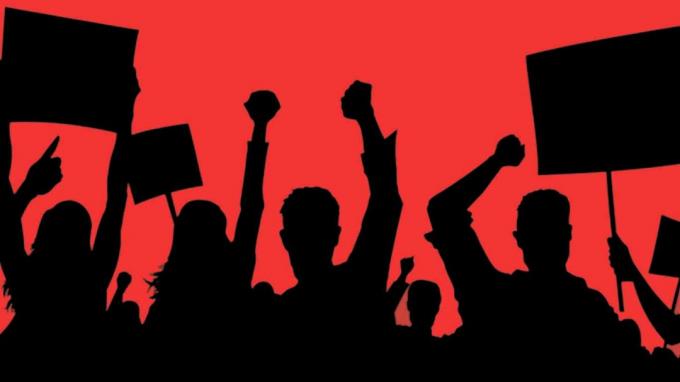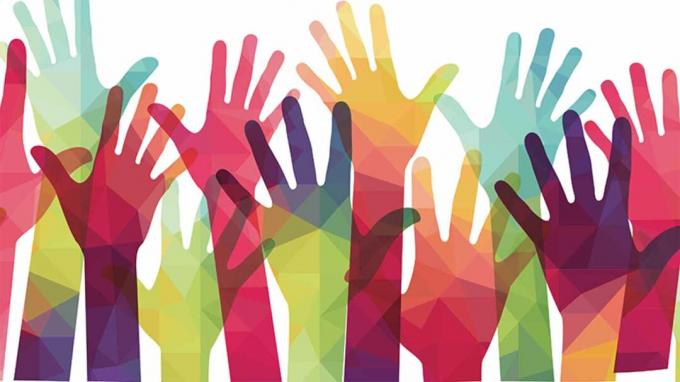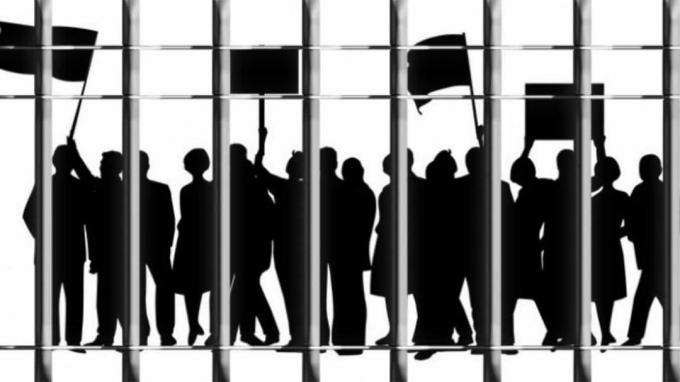Definition of Democracy: History, Characteristics, Principles, Kinds, Examples
Linguistically, democracy comes from the Greek. The word democracy is formed from the word demos which means people, and kratos which means power or strength.
So, the notion of democracy is equivalent to the power of the people. This power covers the social, cultural, political, and economic sectors.
Definition of democracy in general namely a system of government by providing opportunities for all citizens in making decisions. Where all citizens have equal rights in making decisions that can change their lives. In other words, the people act as the holder of the highest power.
This system of government allows all citizens to participate actively.
Citizens may take part directly or through relevant representatives in carrying out the formulation, development and preparation of laws.
For experts, democracy has its own interpretation. Although it boils down to the same goal.
According to Charles Costello, democracy includes a social and political system, which limits the power of government by law. To protect the rights of all citizens. As for Abraham Lincoln, democracy is a system of government, designed from the people, by the people, and for the people.
In addition to understanding democracy, you must also understand the following history of democracy.
Table of contents
History of Democracy

The democratic system has been implemented since ancient Greece. With this system, the people can be directly involved in making decisions regarding the survival of a country.
So, all state matters must be discussed directly with the people. Pure democracy or direct democracy is the system that was promoted at that time.
But at this time, the system is no longer relevant to be implemented. Therefore, it was formed as it is now, with the House of Representatives.
As an extension of the people's aspirations. This condition gave rise to the term representative democracy or indirect democracy.
Indonesia itself has implemented a guided democracy system during the Soekarno government. Meanwhile, Pancasila democracy was promoted during the Soeharto era.
Until the reform era, the Indonesian state still adhered to the Pancasila democratic system. This brief history of democracy must be understood by every Indonesian citizen.
However, during this reformation period, Indonesia began to move towards the true meaning of democracy. Because it can hold direct elections for presidents, members of the legislature, and regional heads.
Changes in regional status and regional expansion are also given by the central government. This was done in order to answer all the wishes and aspirations of the people.
The hope is that justice and prosperity can be felt by every Indonesian citizen.
To make it easier to memorize the meaning of democracy, also understand the characteristics of democracy below.
Characteristics of Democracy

A country is said to have succeeded in implementing a democratic system, if these various characteristics of democracy have been promoted. Here are a number of features to look out for;
- All Decisions Made by the Government
Always based on the aspirations and interests of citizens. So not on the basis of personal or group interests. So that it can prevent rampant corrupt practices.
- Holding General Elections
This people's party must be held periodically, so that representatives or leaders are elected to run the wheels of government.
- Have a People's Representative
As in Indonesia, there is a legislative body called the People's Representative Council (DPR). So that the affairs of the state, the power and sovereignty of the people are represented by the members of the council. They have been elected by general election.
- Applying constitutional features
This relates to the will, interests or power of the people. Where it is stated in the determination of law or legislation. The law created must be fair.
- There is a Party System
Party is a means or media to implement a democratic system. With the people's party, they can be elected as people's representatives as the successor of aspirations. So that the government can fulfill the wishes of the people.
You also have to understand the principles of democracy, not just understanding the meaning of democracy.
Principles of Democracy

There are at least 7 things in the principles of democracy, the following is an explanation;
1. Country Based on Constitution
This principle is related to the Constitution (Basic Law) or all laws that are enacted. The constitution is used as the basis for the nation and state.
Constitutional function namely as a limiting government authority, and can fulfill the rights of the people. That way, the people do not get arbitrary treatment from the authorities.
2. Freedom of Opinion and Association
Every citizen is free to form an organization or association. At the same time, it does not limit their right to express opinions. However, this opinion must be conveyed wisely.
3. Impartial and Free Judiciary
The government cannot intervene in the judiciary. Because the government system adheres to a free judiciary. Neutrality is very much needed, so that you can see the problem correctly and clearly.
So that judges are able to work well in finding justice. Then make a fair decision in every case it handles.
4. Law enforcement
Truth and justice will not be created without law enforcement. The application of the law should not be indiscriminate or one-sided.
Because every citizen has the same position before the law. So, every violation of the law must get strict punishment according to what was done.
5. Periodic Change of Government
So that power is not abused, it is necessary to change the government periodically. Thus minimizing the possibility of corruption, collusion, and nepotism.
Elections must be held in an honest and fair manner. With the hope of bringing up a reliable leader of course.
6. Press Freedom
The press is a medium for channeling the aspirations of citizens. So that it can provide criticism and suggestions to the government as a public policy maker.
Press function others, namely as a means of socializing all government programs. So that there is good communication between the people and the government.
7. Guarantee of Human Rights
The democratic system is said to be successfully implemented if it is accompanied by the protection of human rights.
Because this basic right is the right of every human being. So the state must also respect it, by never committing human rights violations. Read more about kinds of human rights.
With the various definitions of democracy, of course, you also have to know the kinds of democracy. Immediately following.
Kinds of Democracy

Various kinds of democracy can be seen from the distribution of the will of the people, and their attention.
A Model of Democracy Based on the Distribution of the People's Will
1. Direct Democracy (Direct Democracy)
This system of government involves the people directly. Especially in decision-making, such as general elections (elections).
2. Indirect Democracy
This system of government does not involve its citizens directly in every decision making. For example, decisions are formulated and determined by people's representatives (DPR, DPD, and DPRD).
Democracy Model Based On Attention Focus
1. Material Democracy
This system does not reduce political inequality in the slightest, and is very focused on the economic field.
2. Formal Democracy
This system does not reduce economic inequality in the slightest, and is very focused on the political sector.
3. Combined Democracy
The system is a collaboration between material democracy and formal democracy.
Are you able to know the advantages and disadvantages of democracy just by knowing the meaning of democracy? If you don't know, please understand the following points.
Advantages and Disadvantages of Democracy

Advantages of a democratic system
- Equality of rights causes each community to be able to take part in the political system.
- Avoid the monopoly of power.
- The recipient of power is determined based on the wishes and voice of the people.
Lack of a democratic system
- It is easy to shake people's trust because of negative effects. For example, media that are not objective or subjective regarding the delivery of information.
- The focus of the concentration of the government who is still in office is reduced, as the next general election approaches.
- It is considered unfair regarding equal rights because according to experts, each person has a different political understanding.
Actually, by understanding the definition of democracy, you can already determine which country adheres to democracy. But if you don't know, here's a list of countries.
Examples of Countries Adhering to Democracy

Over time, more and more countries have replaced their system of government with a democratic system. Here are some examples of democratic countries;
- Indonesia
In 2014 alone the number of participants involved in the elections reached more than 190 million people. And it can be predicted that in the next election the number of votes will continue to increase. Moreover, there are quite a number of teenagers who have entered the age of being able to voice their voices.
- India
the system adopted by India is a liberal democratic system. The process of running the elections there is really well maintained and takes place safely, the system used is really efficient.
- United States of America
The journey of democracy there until now is really good and has become a superpower. The number of participants in the election there reached approximately 250 million people, which shows how high the enthusiasm of the United States community there.
- Brazil
Regarding voting rights in elections in Brazil can reach 140 million people. The general election in Brazil itself is held every 4 years, unlike Indonesia, which is held every five years.
- Pakistan
This country has the concept of an Islamic republic government. However, regarding the implementation of elections, the government still uses a democratic system through general elections.
- Nigeria
This country itself has the concept of a federal republic government of Nigeria which has just implemented the last general election which took place in 2015. Which on the determination in the state of Nigeria is implemented to coincide with the presidential and parliamentary elections of government.
